The European Digital Deal is a three-year investigation co-funded by Creative Europe into how the accelerated, yet at times unconsidered adoption of new technologies—such as artificial intelligence, machine learning, blockchain and algorithmic processing—can alter or undermine democratic processes.
The European Digital Deal is a three-year investigation co-funded by Creative Europe into how the accelerated, yet at times unconsidered adoption of new technologies—such as artificial intelligence, machine learning, blockchain and algorithmic processing—can alter or undermine democratic processes.
Through a myriad of programs running from January 2023 to December 2025, we want to set up a new kind of public forum where cultural institutions, artists, researchers and educators gather to reflect on what a deal that safeguards democratic values in the digital realm might look like, and the role they can play in shaping it.
Our focus
As new technologies become part and parcel of the ways in which we disseminate and consume information or interact with public administration, they mold our view of the world and our relationship with governments. Unpacking the entanglements of technology with the media and public administration is a first step in reaching a digital deal that is committed to democratic principles.
Beyond exposing the present-day risks, the project also draws into question the current architecture of innovation processes and makes a case for the long-term environmental and societal impacts to be considered in designing fair, ethical and sustainable technologies in the future.
Our partnership
Coordinated by Ars Electronica (AT) and co-funded by the Creative Europe Programme of the European Union, we are tackling these topics from the diverse perspectives of thirteen European partners: Center for the Promotion of Science (RS), Culture Yard (DK), Gluon (BE), Teatro Circo de Braga (PT), iMAL (BE), Kersnikova (SI), LABoral (ES), Onassis Culture (GR), Pro Progressione (HU), Sineglossa (IT), Waag (NL) and Zaragoza City of Knowledge Foundation (ES).
Credits
European Digital Deal is co-funded by the Creative Europe Programme of the European Union. This project was also co-funded by the Austrian Federal Ministry for Arts, Culture, the Civil Service and Sport.
European Digital Deal Summit
The European Digital Deal Summit is a series of workshops that will take place during the Ars Electronica Festival 2023. Experts, artists and researchers from different cultures, backgrounds and disciplines come together in a think-tank-setting and collectively brainstorm to set the basis for the research of the project.
Immersed in the line-up of events and artistic interventions of Ars Electronica Festival 2023, this workshop will build working groups around thematic areas, such as tech & media, ethical, fair & sustainable technologies as well as tech diplomacy & policy.
Intended Outcomes
Experts from all around the world will gather in Linz from September 7th to 10th to define the key research questions and challenges for fourteen artist residencies starting in 2024. The call for the residencies will be launched in October this year.
Based on the project’s core thematic strands, participants will define focuses for the Digital Future Challenges that artists will respond to in their projects, prototypes or innovations. Every working group will formulate five research questions to further advance the discourse and artistic experimentation. At the heart of this exploration will be the question of how we can ensure that our democratic systems remain intact throughout the accelerated integration of high-level technologies.
WHY QUESTIONS?
Art forms creative questions and design conceives creative solutions. Art also acts as a catalyst for opening up new perspectives, encouraging curiosity to look at what is behind the scenes and stimulating creative solutions. Art Thinking is the process of applying artistic thinking and an artistic view to a broader range of challenges.
How can we become more human? How can we co-exist with technology as our second nature? Artists have always understood the power of questions. They transcend from spiritual to material, function to form, natural science to social science, in search of a fitting match for a theme, medium and expression. They detect social and technological trends that have no name yet and give means to communicate those micro trends tangibly. Art Thinking is why we encourage all participants to ideate collaboratively on the European Digital Deal’s core questions!
Digital Deal Summit
Schedule
| THU 7.9., 2:00 pm – 4:30 pm POSTCITY, IDSA FOUNDING LAB Stage | Kick-off (by invitations only) |
| FRI 8.9., 11:00 am – 1:00 pm POSTCITY, First Floor, IDSA FOUNDING LAB Exhibition | Working session I – Sharing of understanding and good practices (Workshop) |
| SAT 10.9., 11:00 am – 1:00 pm POSTCITY, First Floor, IDSA FOUNDING LAB Exhibition | Working session II – Mapping criteria and dimensions of the Digital Future Challenges (Workshop) |
| SAT 10.9., 2:00 pm – 4:30 pm POSTCITY, First Floor, IDSA FOUNDING LAB Exhibition | Working session III – Clustering and developing Digital Future Challenges (Workshop) |
| SUN 10.9., 3:30 pm – 4:30 pm POSTCITY, First Floor, Conference stage | Final Presentation of the Outcomes |
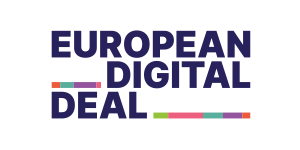
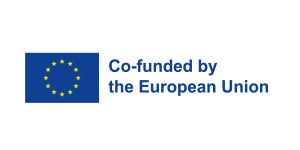
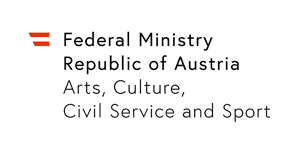
European Digital Deal Summit Working Groups
GROUP 1
FAKE OR TRUTH? TACKLING DISINFORMATION THROUGH A WIDER PARTICIPATION OF CITIZENS AND ARTISTS ENGAGING MORE MEANINGFULLY WITH HIGH-QUALITY JOURNALISM, SCIENCE EDUCATION AND DIGITAL CITIZENSHIP
Challenge description:
The media industry has been vastly transformed by technology. Traditional news media has evolved and expanded into the digital space, while the social media of the Web 2.0 has entirely changed how information is shared and received on a global level. Whereas access to and distribution of information was dictated for most of modern society by governing bodies, religious entities or publishers, the rise of digital technologies in the final third of the 21st century challenged the ability of these entities to exercise authority over information control systems. While many of the traditional channels are still used to direct information on a societal level, individuals have become distributors of information themselves. This is especially true for the spread of information on the most prevalent social media platforms, such as Facebook, Instagram, TikTok and YouTube. While these digital public spaces were heralded in the early years of the 21st century as forms of social innovation and democratization, they have also become a tool for authoritarian regimes to manipulate public opinion and spread targeted disinformation and have led to the formation of echo chambers and filter bubbles that foster mis- or disinformation among individual users. Moreover, the improvements of visual-based creation models have led to the generation of fake content which is increasingly difficult for humans and machines to distinguish as artificial, adding another layer of complexity to the efforts for safeguarding democratic processes.
Subtopics of the challenge:
- Citizen Participation: Citizens can help to create counter-narratives that challenge false or misleading information or share reliable sources with their networks. Citizens and artists can work together to create campaigns or platforms that raise awareness about disinformation and encourage people to act against it. Citizens can pressure social media platforms to take responsibility for the spread of disinformation on their sites.
- Art-Science Innovation: Artists can create artwork, music, or other forms of media dealing with disinformation and misinformation, critical approaches to media, fact checking, psychological biases, and disinformation during the rise of AI. Artists can develop alternative visions for platforms.
- Education on disinformation and creating awareness on fact-checking information: Providing resources and opportunities for citizens to develop media literacy competences, cope with own biases and limitations, foster intellectual agency and evaluating disagreements about how to know. Artists can create engaging and creative content that promotes media and scientific literacy and critical thinking.
- Forensic Journalism and alternative information retrieval systems: Shed light on hidden truths, challenge conventional narratives and provide the public with a more accurate and nuanced portrayal of events, ultimately strengthening transparency, democracy and ensuring a well-informed citizenry.
FACILITATOR:
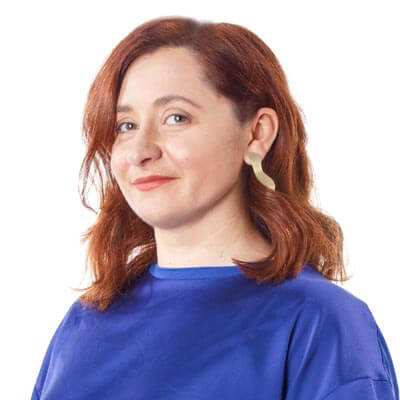
Irina Paraschivoiu (RO)
Irina Paraschivoiu is a researcher, experimenter, and educator, passionate about the human-centered design of places and technology. Merging her backgrounds in urban planning and human-computer interaction, her work focuses on how to best involve users as co-designers of technology applications in the fields of media literacy, extended reality (XR) and spatial interaction. She is Strategist and COO of Polycular, a creative technology studio creating meaningful XR experiences. She co-initiated and led Escape Fake, an augmented reality experience dedicated to educators, with the aim to develop innovative tools for education on media literacy. As a Research Fellow at the Department of Artificial Intelligence and Human Interfaces in Salzburg, she focuses on digital placemaking, hybrid interactions within the built environment and collaborative XR.
PARTICIPANTS:
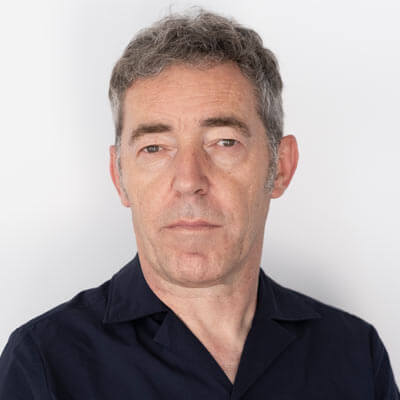
Amilcar Correia
Amilcar Correia is the main reporter at Público newspaper. He was deputy editor-in-chief and head of digital for newspaper Público’s website. He was the creator and editor-in-chief for P3, an award- winning website dedicated to young adults.
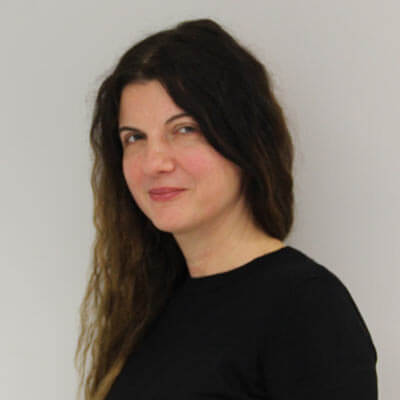
Theodora Kotsaka (GR)
Theodora Kotsaka is a political sociologist with degrees from University of Athens (Phd in Political Sociology), Essex University UK (MA in Political Behavior), Aegean University (MA in Social Anthropology) and Panteion University (Degree in Political Science and International Relations). She works as a scientific researcher for think tanks, research institutes, EU projects and as an expert for the private sector.
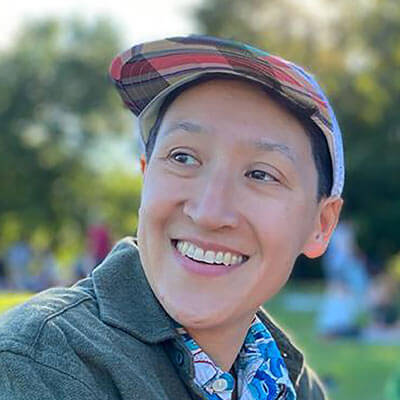
Kasia Chmielinski (US)
Kasia Chmielinski (they/them) is the Co-Founder of the Data Nutrition Project, an initiative that builds tools to mitigate bias in artificial intelligence, and a fellow at Stanford University focused on building responsible data systems.
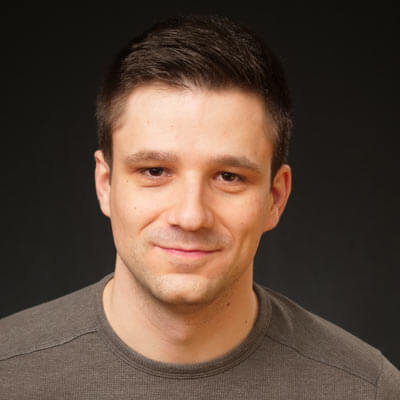
Stefan Janjić (RS)
Stefan Janjić (he/him) is an Assistant Professor in the Department of Media Studies at Faculty of Philosophy, University of Novi Sad. Since 2018, works as an editor-in-chief at FakeNews Tragač, a fact-checking website.
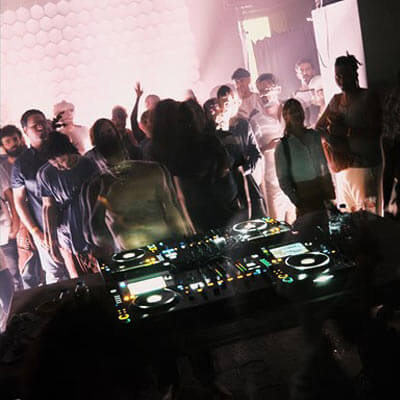
Warren Jones (US)
Warren Jones is an interdisciplinary artist working in the field of sound and music. He is the co-founder of Black Ether an artist movement aimed at reclaiming space for black artists.
GROUP 2
DIGITAL RIGHTS AND CLIMATE JUSTICE: CREATING A JUST AND SUSTAINABLE INTERNET FOR ALL
Challenge description:
The internet is often imagined as a cloud, untouchable, unquestionable and above everything else. Yet, technology and connectivity also have real world implications—both socially and environmentally. Digital infrastructure has a high energy consumption, data centers mostly run on fossil fuels and have a large carbon footprint, electronic devices cause mountains of e-waste all over the world and climate mis- and disinformation creates threats to the safety of environmental activists across the globe. At the same time, many good ideas for a just and sustainable internet are already at hand. Movements that encourage a slow web and work with open-source technologies to make the internet accessible and changeable, feminist and decolonial initiatives that focus on making the internet a more just and sustainable space, and coalitions that work at the intersection of digital rights and climate justice to advance both movements at the same time.
The goal of this group is to understand the social and environmental impact of digital infrastructure, and how it intersects with other issues of justice. Based on this, we will create our own alternative futures. We will work on visions and ask: How can we create a just and sustainable internet for all?
Subtopics of the challenge:
- Working at the intersection of digital rights and climate justice: What can these movements learn from each other and potentially collaborate?
- Reflecting on just & sustainable use of technology through a focus on feminist, decolonial, and open-source approaches
- Building sustainable practices into code: How can code and attention to CO2 emissions create the internet we all want to see
- Developing new practices based on a shared economy and solidarity models: how can artists reimagine processes and design models of interdisciplinary approaches that lead to the development of new ideas and perspectives that integrate environmental consciousness with technological advancements.
FACILITATOR:
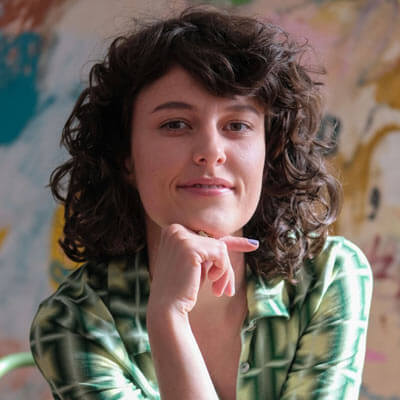
Katrin Fritsch (AT)
Katrin Fritsch researches, writes, and consults at the intersection of technology, feminism, and climate. She advises non-profits, ministries, and businesses on data, justice, and emerging technologies. Senior program manager at the Green Web Foundation, and chair of the Austrian digital rights organization epicenter.works Co-founded and co-led MOTIF Institute for Digital Culture, a think tank working towards social justice in the digital age. Co-initiator of Feminist Futures, a participatory art project that advocates for just futures of the Internet. With the project Feminist Futures, she was finalist for the New European Bauhaus Prize. In 2020, Katrin was awarded the Coaching Fellowship – a program that empowers extraordinary young women leaders of impact. Katrin holds an MSc in Data and Society from the London School of Economics and Political Science and a BA from the University of the Arts Berlin. Katrin was placed on Forbes magazine’s 30 under 30 list.
PARTICIPANTS:

Emese Thamó (HU)
Emese Thamó is interested in the intersection of technology, art and design. After obtaining her degree in Mathematics at the University of Cambridge, she conducted research on AI explainability and safety at the University of Liverpool.
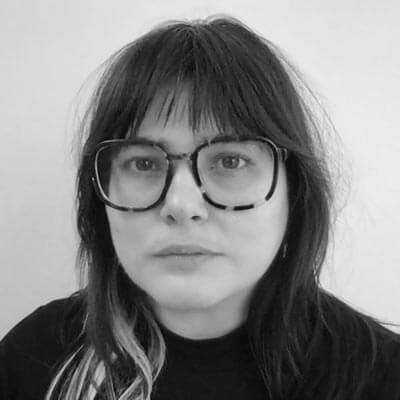
Neena Singh (BE)
Neena Singh (she/her) is a project officer at both the Knowledge Center Data & Society and the research group imec-SMIT VUB. Within the Knowledge Center Data & Society she also works on the topic Ethics in practice in which she is part of the team that is developing an ethical toolbox for organizations.
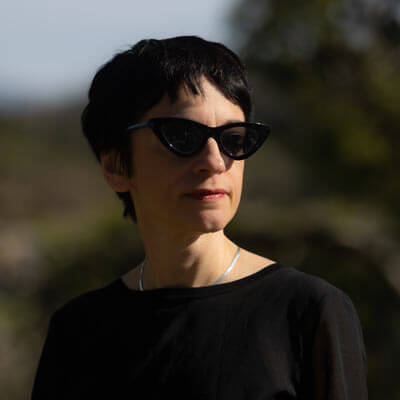
Daphne Dragona (GR)
Daphne Dragona (she/her) is an independent curator, theorist and writer based in Berlin. In her current work, she addresses the challenges of degrowth for art and culture and studies the ambiguous role of technology in times of climate crisis.
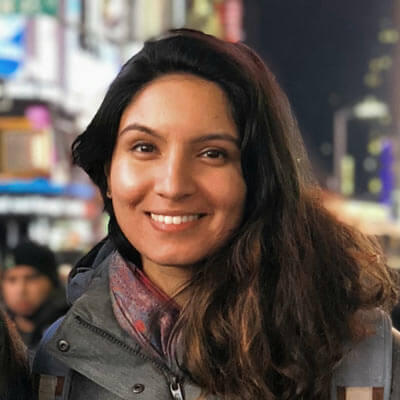
Sruti Modekurty (US)
Sruti Modekurty (she/her) is currently pursuing an Erasmus Mundus Joint master’s degree in urban climate and sustainability and has a bachelor’s degree in electrical & computer engineering from Carnegie Mellon University.
GROUP 3
DIGITAL INCLUSION & WEB ACCESSIBILITY IN EUROPE
Challenge description:
Contemporary technology has been created and shaped by predominantly male, white, northern centric, capital-driven perspectives. Not only does it predominantly cater to the needs of just a fragment of the human community, but it is also potentially, in many cases provenly biased against a large majority of people who often do not even have access to technology. We must ask who is represented, who is addressed, whose perspective shapes technologies, who has access to it and who owns the truth fragments generated by non-inclusive systems? Issues range from those requiring easy-to-implement solutions like contrast in web design and reader-software-friendly content management systems to increase accessibility of the web for the visually impaired, to highly complex questions of training data sets for AI models and reasons for technological bias. They even go beyond the digital elements of technology and raise questions of availability and accessibility of physical interfaces with the web. This workshop will tackle questions of inclusion and accessibility both from a makers’ and a users’ perspective. Various facets will be discussed, from data to software and hardware, and from data collection to output production. The final goal is to develop recommendations for a more inclusive, accessible, human and community centered approach to technological development and innovation.
Subtopics of the challenge:
- Accessible ICT: making ICT more accessible for all and fostering the development of accessible technologies;
- Deficit Assistive technologies: supporting the development of ICT that assists people with disabilities in the digital world;
- Skills and digital skills: empowering citizens to fight marginalisation and social exclusion, including in careers, through ICT in Education.
FACILITATOR:
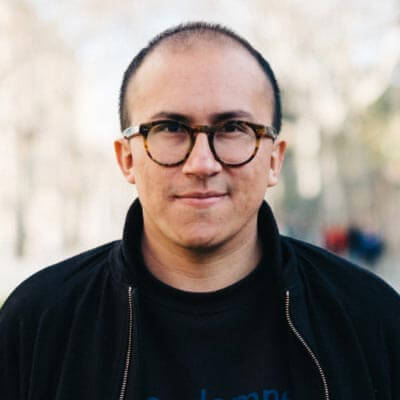
Andres Colmenares (CO/ES)
Andres Colmenares is co-founder of IAM, a creative research lab founded by Lucy Black-Swan and Andres Colmenares based in Barcelona. In close collaboration with a broad network of specialists, they help citizens and organizations make responsible decisions by using futures as tools to anticipate challenges and opportunities, while exploring the socio-ecological impacts of digital technologies and the internet(s) through collective learning initiatives, partnerships and commissioned projects. He is also the director of a pioneering Master program in Design for Responsible AI at ELISAVA and co-founder of the Billion Seconds Institute, a lifelong learning initiative to reimagine the digital economy. He is also strategic advisor of The Supporting Act Foundation.
PARTICIPANTS:
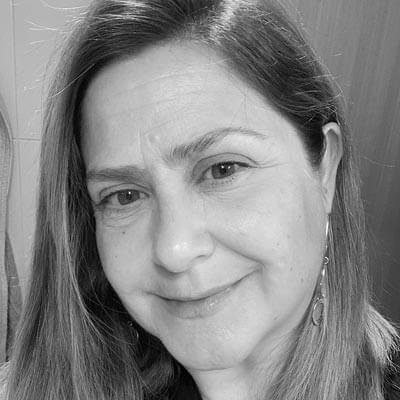
Rosa Maria Gil Iranzo
Rosa Maria Gil Iranzo holds a PhD in computer science and digital communication from Pompeu Fabra University (Barcelona, Spain) and a BA in Physics from the University of Barcelona. Associate professor at the University of Lleida and the coordinator/creator of the official degree in digital design and creative technologies.
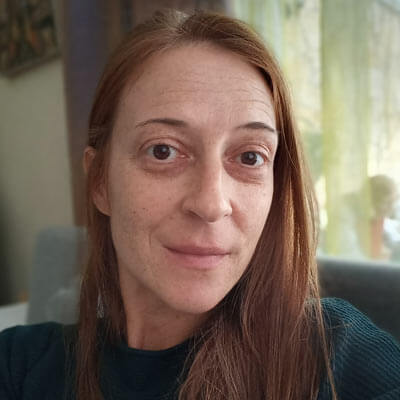
Jelena Guga (RS)
Jelena Guga is a new media art and culture theorist, currently a research fellow and coordinator of the Digital Society Lab at the Institute of Philosophy and Social Theory, University of Belgrade.
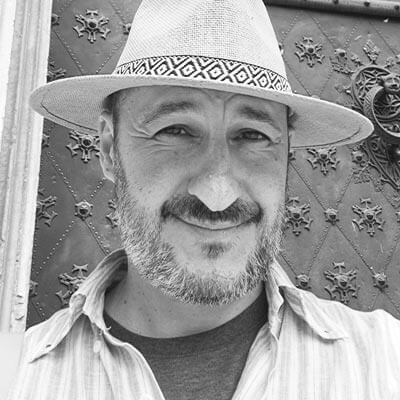
Luca Baraldi (IT)
Luca Baraldi is an expert in cultural policies and cultural diplomacy, he has been operating internationally for twenty years in social regeneration and strategic communication projects.
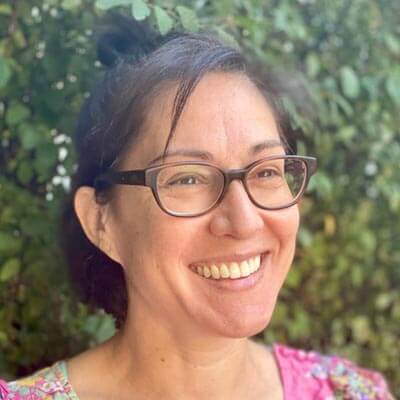
Christy Lange
Christy Lange is Program Director at Tactical Tech, an international NGO focused on the effects of technology on society, designing resources and creative interventions to help teach people about the advantages and risks of technology on society.
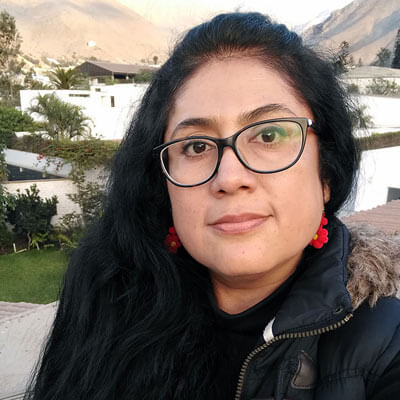
Cecilia Vilca (PE)
Cecilia Vilca (she/her) is a Peruvian transartist feminist, chola techno-witch and language activist. M.A. Digital Arts, Universitat PompeuFabra, Barcelona, Spain. Founding member of art/science and digital heritage division of MyAP, Electron Microscopy Laboratory.
GROUP 4
OPEN GOVERNMENT DATA AND CITIZEN PARTICIPATION
Challenge description:
This workshop is designed to facilitate mutual understanding among participants from different backgrounds, thereby fostering group dynamics and deepening their knowledge of the topic of open data and citizen participation.
The first half of the workshop will begin with the facilitators’ personal experiences of past participation and engagement in communities, reflecting on the pervasive nature of power and dissent. Participants will then engage in interactive dialogue and visual facilitation to explore various aspects of neo-despotism (a key factor in the centralized institutionalization of closed authoritarianism). Through this process, the group will reflect on the meaning of openness, which extends beyond open government to encompass open organizations and open data (resources) and their potential roles in the social, political, economic and cultural dimensions of our lives. Additionally, the workshop moderator will share their own experiences in utilizing deliberation and open data to promote a culture of civic participation in governance.
The second half will focus on mapping and reimagining a better future ecosystem and support system that encompasses both human and non-human entities. Through the practice of storytelling, the group will collectively construct its own artistic narratives of the future with creative questions that they wish to explore further, and finally make a wish-list (suggestions to policymakers) that resonate with everyone’s perspectives.
Subtopics of the challenge:
- Digital and Data Divide
- Neo-Despotism and Democratic Deficit
- Web3 Public Goods and Regenerative Culture
FACILITATOR:
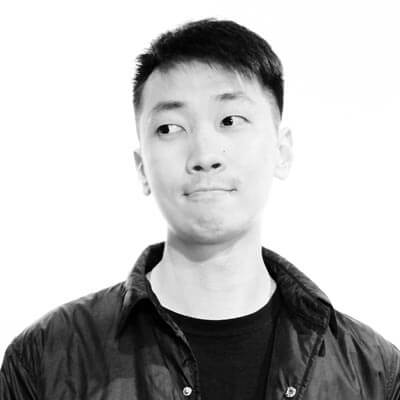
Yun-Cheng Chen (TW)
Yun-Cheng (Lucky) Chen is a freelance trans-disciplinary design artivist and strategist. He has lived in USA and Germany, advancing his studies under the guidance of Professor Dr. Michael Erlhoff who first introduced the concept of Service Design. With expertise in performing arts, regional revitalization, deliberative democracy, digital transformation, and open-source movement, Lucky has been invited to program and execute over a hundred projects since 2016, integrating resources and initiating actions between industry, government, university, and global communities/DAOs. He is currently the Strategy Director at Les Petites Choses Production, Seabelongings, g0v and Web3 decentralized community da0 community activist, also a resident artist at the New Taipei City Art Museum. He has previously co-founded Taiwan’s first designer residency co-creating space, „planett“, initiated the first performing arts subscription crowdfund project in Taiwan, „Monday School,“ and won the first prize in the group category of the Kai-Fu Lee Silicon Valley Entrepreneurship Support Program. He served as the Digital Design Strategy Director for the 2021 National Culture Conference and lead non-profit dance group in digital transformation into a performing arts cooperative.
g0v (government zero) is a grassroots movement, decentralized and civic-tech community in Taiwan that sees information transparency, open results and open cooperation as its core values. g0v works on community projects like Government Budget Visualization for active civic accountability and VTaiwan, an online platform that facilitates public consultations and consensus-building on various policy issues. Additionally, g0v offers the Civic Tech Prototype Grant and holds bimonthly hackathons/community hackathons since 2012, accumulating over 800 proposals and more than 170 projects to date. g0v develops various civic tech tools for public opinion collection and promotes open data projects, enabling citizens to express their views and access government information for informed decision-making.
PARTICIPANTS:
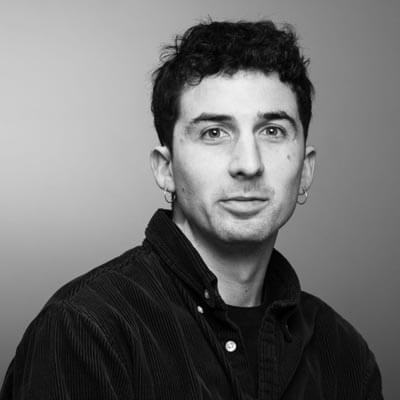
Lluc Bono Rosselo (ES)
Lluc Bono Rosselo is a former industrial engineer and holds a master’s degree in Computer Science with a focus on AI. Currently pursuing a PhD, he is researching the intersection of AI and music, exploring innovative avenues in computational creativity.
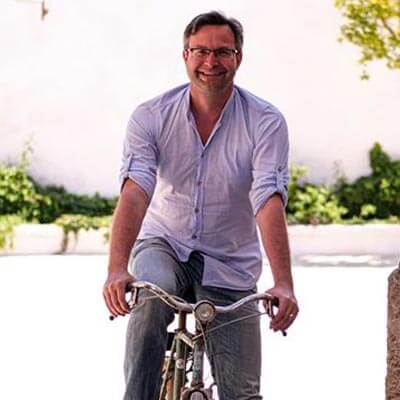
Simon Delakorda (SI)
Simon Delakorda M.Sc. is a digital democracy and e-participation practitioner and researcher. He is an executive director at the Institute for Electronic Participation NGO in Ljubljana, Slovenia
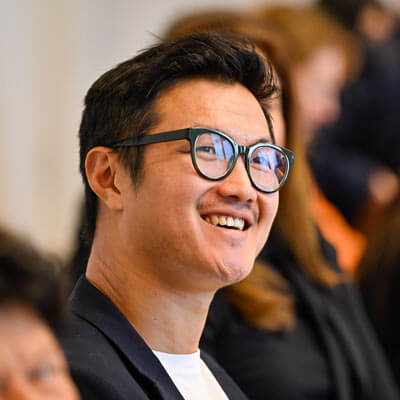
Lewis Hou (GB)
Lewis Hou (he/him) is the founder and director of Science Ceilidh, an intermediary organization supporting communities, education, research and culture across Scotland. He consults on equitable community engagement both nationally and internationally and is an organizing member of the global DiverSci Community of Practice.
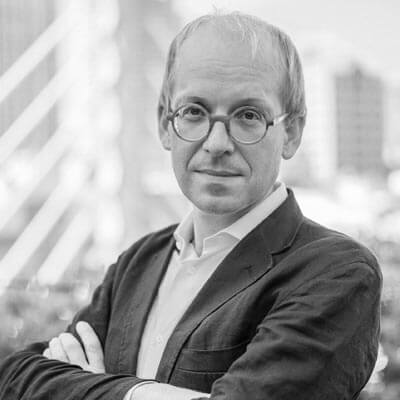
Martin Rauchbauer
Martin Rauchbauer’s expertise lies at the intersection of diplomacy, arts, technology, and the environment. Martin served for two years as Austria’s first Tech Ambassador to Silicon Valley.
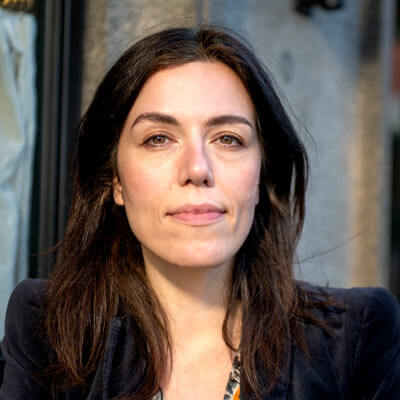
Marta Peirano (ES)
Marta Peirano Writer and journalist, Marta Peirano is a columnist for El País, host of a technology and politics section on Las mañanas de RNE and organizes festivals and exhibitions on technology and power.
